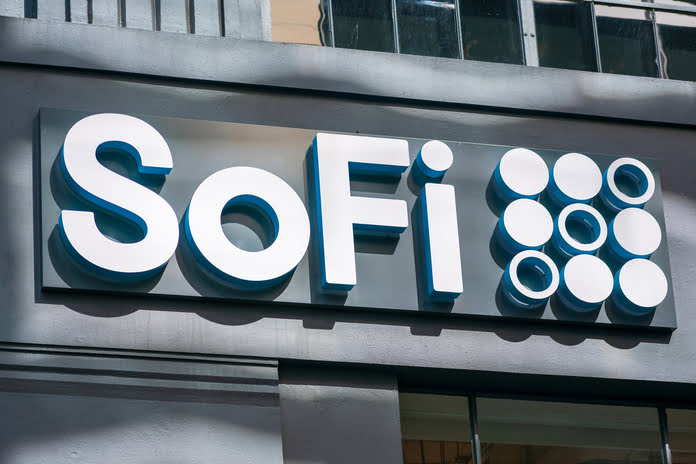SoFi Stock (NASDAQ:SOFI)
According to documents filed with the Securities and Exchange Commission, insiders of SoFi Technologies have lately revealed stock transactions, some of which took place more than a year ago.
In a regulatory filing that was submitted on Tuesday, SoFi Technologies Inc (NASDAQ:SOFI) CEO Anthony Noto revealed that his wife, Kristin Noto, had purchased 33,259 shares of the financial services provider on the open market for a total of $217,573 between the months of August 2021 and May of this year. In a single 2021 transaction, Kristin Noto spent an average of $14.23 for each share she bought, but the aggregate average purchase price of all of her purchases was only $6.54 for each share.
On May 5, following a decline in 2022, she purchased the majority of the stock, which amounted to 19,833 shares. The price of SoFi stock dropped by 71% in 2022 and has been relatively stable thus far in 2023, including a 9% decrease in trade on Monday.
It had not been previously reported that she had made any purchases of SoFi stock, and the 33,259 shares now constitute the entirety of her personal ownership in the company.
The Securities and Exchange Commission (SEC) requires company insiders and their spouses to declare any stock transfers to the agency within two business days after the transaction. The Securities and Exchange Commission did not comment on the report that disclosed Kristin Noto’s stock acquisitions.
SoFi did not immediately reply to requests made through email and a phone call to comment on this article or to make Anthony Noto available for comment on the filing. Moreover, SoFi did not provide a statement on the filing itself. A request for comment that was submitted to Kristin Noto through her personal website was not met with an immediate response.
The shares of SoFi fell on May 1 following the release of the firm’s earnings report for the first quarter, in which the company stated that the number of personal loans originating during the first three months of the year was at a record high. Investors appeared to have seen that as a signal that losses were likely to occur in the future.
The decline in the price of the shares on Monday may have been caused in part by a downgrade from an analyst, but it may also have been caused in part by investors just taking profits. The price of SoFi stock increased by 32% over the first three months of 2023; but, following the declines experienced this month, the stock’s value has decreased by 24% thus far during the second quarter.
Anthony Noto spent a total of $390,218 over the course of May 4 and 5 to purchase 80,000 shares of SoFi at an average price of $4.88 per share. This transaction took place not long after the first-quarter report was released. In his personal account, he now has ownership of 6.4 million SoFi shares. Since May 2021, Noto has served as the Chief Executive Officer of SoFi.
Jeremy Rishel, Chief Technology Officer of SoFi, sold 200,000 shares of the company’s stock on Tuesday for a total of $1.1 million, which works out to an average price of $5.47 per share. He is currently the owner of 101,582 shares. In addition, Rishel, who joined SoFi in June 2022, sold 81,000 SoFi shares in March for a total of $523,276, which works out to a price of $6.46 per share on average. He does not appear to have made any stock transactions on open markets, and the majority of the shares that he possesses were obtained through the conversion of restricted stock units.
Requests for the company’s opinion concerning Rishel’s sales were met with silence from the establishment.
Rule 10b5-1 plans are trading plans that many firms require their executives and directors to use in order to purchase and sell stock. These plans are designed to execute transactions automatically if certain predetermined criteria are satisfied. They are designed to exclude any possibility that those with access to nonpublic information could benefit from having that access.
The current proxy statement from SoFi does not address whether or not insiders are required to use trading strategies, which is contrary to what is generally included in the proxy statements of companies. According to the filings with the SEC, none of the transactions detailed above were carried out using instruments of this kind.
Financial Performance and Growth Trajectory
Sofi’s financial performance has been impressive, showcasing consistent growth and resilience. The company has witnessed a steady increase in revenue over the past few years, driven by its diverse product portfolio and expanding customer base. With a strong focus on customer acquisition and retention, Sofi has achieved remarkable results in scaling its business operations.
Expanding Market Opportunities
The financial technology industry is experiencing a rapid transformation, presenting immense opportunities for companies like Sofi. With the increasing adoption of digital solutions and changing consumer preferences, Sofi is well-equipped to capitalize on these market dynamics. The company’s innovative approach to finance, coupled with its user-friendly platform, positions it as a frontrunner in meeting the evolving needs of today’s customers.
The Future Outlook for Sofi
Looking ahead, Sofi is poised for continued growth and success. The company’s strategic initiatives, coupled with its strong leadership and solid financial performance, instill confidence in its future prospects. As Sofi expands its product offerings and leverages its strategic partnerships, it is well-positioned to capture a larger market share and deliver long-term value to its investors.
Investing in Sofi stock presents a compelling opportunity for growth. With its innovative approach to finance, strategic partnerships, impressive financial performance, and visionary leadership, Sofi has established itself as a formidable player in the fintech industry. As the company continues to expand its market presence and tap into emerging opportunities, investors stand to benefit from the potential upside that Sofi offers.
Featured Image: Megapixl © Michaelvi















